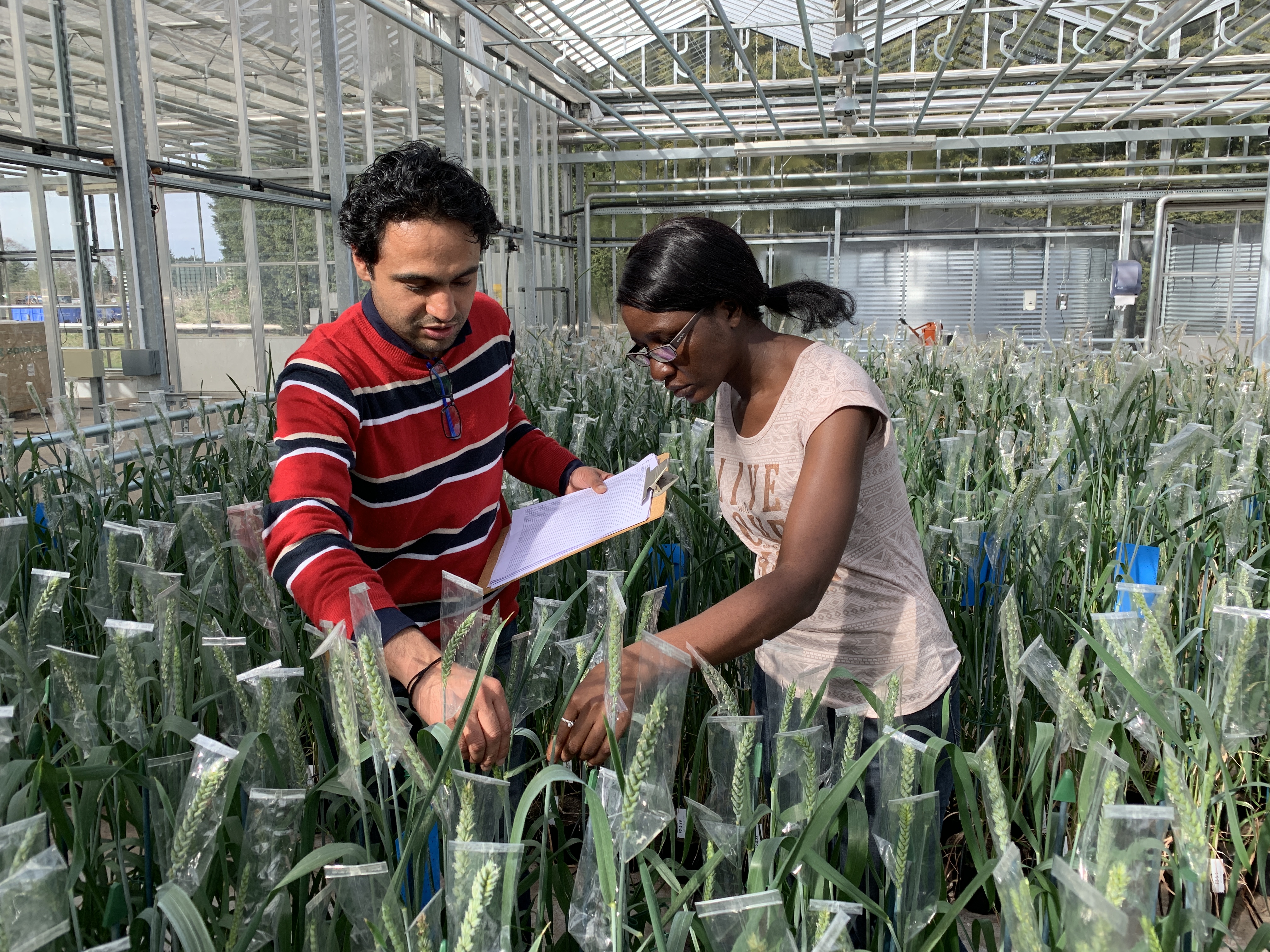
November 11, 2019, by Lexi Earl
The importance of zinc in cereal crops: An interview with Veronica Guwela
Veronica Guwela is a UoN-Rothamsted PhD student recipient. Their project is titled: ‘High zinc wheat for sub-Saharan Africa’ and they are supervised by Prof Julie King (UoN), Dr Malcolm Hawkesford (RRes), Prof Martin Broadley (UoN) and Prof Moses Maliro (LUANAR) .
Why did you decide to do a PhD? What were you doing before?
I decided to do a PhD because I am very passionate about molecular breeding tools and their application in plant breeding, such as marker assisted breeding. I did a Master’s degree in plant breeding using conventional techniques and I always wanted to do molecular work to enhance my skills. A PhD is also very important to me for my long term career goals because I want to conduct novel research and contribute to my field of study. Before I started my PhD, I was coordinating a USAID/AGRA funded project on scaling seeds and technologies at Chancellor College, University of Malawi.
Why did you choose this particular scheme (Rothamsted-UoN)?
The UoN-Rothamsted scheme was very appealing to me because I knew it will expose me to different perspectives of my research work with supervisory support from both institutions. It gives me access to state of the art facilities. I also hoped that it would expand my professional network and add more credibility to my reputation as a researcher and my research work.
Tell us about your research. What do you study? Why is it important?
My work is mainly focused on exploring the wider genetic diversity among wheat and wheat wild relatives in order to develop wheat lines with a high grain zinc concentration suitable for sub-Saharan Africa environments. I am interested in transferring the wheat-wild relative introgressions that have been analysed for high grain zinc concentration into African wheat and characterising them using molecular and cytological tools. The research is very important because zinc deficiency is a huge global challenge which affects more than 40% of people in parts of sub-Saharan Africa. Most people at risk of zinc deficiency are usually on low to middle incomes, who cannot afford to buy foods rich in zinc or fortified with zinc, and cereals make up their staple diet. Therefore, breeding for increased zinc will be the most affordable and easily accessible way to make the nutrients available to such communities.

How has your first year gone? Any highlights or successes?
So far so good. I am really enjoying my work. I spent the first 5 months of my PhD undertaking training in different laboratory techniques that I will need for my research, and it has been challenging and interesting at the same time. I had the opportunity to present my research at the 2019 Biosciences postgraduate conference and I was excited that my talk was voted the best in Plant and Crop Sciences!

Has undertaking a PhD been different from other degrees you have done? How so?
Doing a PhD is totally different from any other degrees because a PhD prepares you to be an independent researcher and also increases your desire to contribute significantly to your field. It opens up opportunities to network and to learn what others are doing in your field.
What have you learnt through your first PhD year?
I have gained enormous lab skills especially related to cytogenetics, genotyping and plant mineral analysis. I have done two talks within the space of 6 months thus improving my presentation skills. I have also learnt to be more disciplined, focused and resilient in order to achieve my goals.
How do you explain your research to ordinary people?
Zinc is one of the most important elements in human nutrition because it contributes to the physical and mental development of human beings. Dietary deficiency of zinc may result in high risks of infections, cognitive impairment and stunting in children while babies born to women with zinc deficiencies may have low birth weights. My research is therefore aimed at transferring genetic material responsible for increased zinc from some wild wheat varieties into cultivated African wheat as a way to increase the zinc concentration.

How do you cope with the pressure of doing a PhD?
I usually sing and listen to different types of music. Sometimes I watch a movie or read a motivational book.
Anything else?
I am grateful to be part of the Beacon community. I believe there is so much to learn from the diversity of research, skills and the people.
No comments yet, fill out a comment to be the first

Leave a Reply